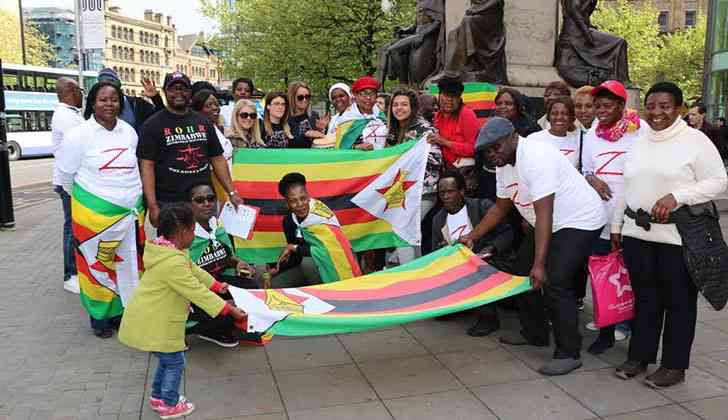
The Conference of Parties number 28 (COP28), has come and gone.
For two good weeks, the entire world gathered in the emirate of Dubai, from November 30 to December 12, 2023. The world descended in Dubai under one stable but different pavilions, punctuated by one objective and common goal that is climate finance, which has been described as “all finance is climate finance”.
Delegates and chief negotiators haggled and wrangled, finally and in principle, they reached what on paper appears to be a settlement.
As the delegates gathered in Dubai, there were key sticking issues requiring the world’s attention and thorough deliberations. These were to do with addressing loss and damage associated with climate change, an increase in reliable and quality adaptation, operationalise the global goal on adaptation to boost action, global stock take must cause correct climate action, progress towards resilient food and agricultural systems, strengthen transformative national adaptation (National Adaptation Plans and Adaptation Communications), among others.
In short, many of these key sticking points focused on climate finance for adaptation to translate into climate action. Climate action is at the heart of resilience building as highlighted by Sustainable Development Goal 13, take urgent action to combat climate change and its impacts.
It is the dearest wish of this discussion to interrogate the key sticking issues as they apply to the pledged or what was agreed upon, in line with the possible implications, especially to the African continent, due to its vulnerability and remedial status.
The source of too much climate noise emanated from the loss and damage associated with climate change. In other words, these can be described as climate-induced loss and damage as their impacts are strongly linked to the composition of global warming and natural disasters involved, cyclones, floods, droughts, among others.
Although, climate-induced loss and damage can be viewed in the context of mitigation and adaptation, these areas overshadowed many other key sticking issues, as they focused more on money.
- COP26 a washout? Don’t lose hope – here’s why
- Out & about: Bright sheds light on Vic Falls Carnival
- COP26 a washout? Don’t lose hope – here’s why
- Out & about: Bright sheds light on Vic Falls Carnival
Keep Reading
In this regard, developing nations felt that the developed countries, especially the main polluting actors had an obligation to pay for losses and damages realised mainly in the Global South. As nations from the Global South clamoured for loss and damage finance, they did not bother to consider their shambolic state of preparedness, ill-equipped, weak coping mechanisms and the history of not settling debts. All they wanted is money, yesterday, soon and very soon.
Loss and damage, under the auspices of climate finance have always been at the heart of the United Nations Framework Convention on Climate Change’s Paris Agreement. The main bone of contention from the developing countries was that loss and damage funds be treated as a standalone entity, not embedded in other forms of finances which would make them too general and ambiguous.
The other expectation was that loss and damage finance be easily accessible at low interest rates. This would prove to be helpful in the long run because even poor nations may also manage to repay the loans. Although Africa has not been such a good debtor, this time they are not borrowing, although they have an obligation to repay.
There are also other deeper underlying issues regarding transparency and accountability in terms of handling these finances.
Although Africa has come of age now in terms of fighting corruption and embezzlement of donor funds, many neutrals would still ask if the leopard has changed its spots, if loss and damage funds will be used for their sole purpose or they will go down the same drain which swallowed other borrowed funds before.
The other sticking point was to make progress towards resilient and just food and agriculture systems in the face of climate change. Agriculture is the backbone of many African economies, surprisingly many African countries always go hungry not because of the El-Nino phenomenon but due to poor capitalisation, lack of the required technologies to boost agricultural production including weak adaptation in the agricultural sector.
Agriculture is one of the most emission intensive sectors hence it needs to be decarbonised and rendered smart. Conservation farming is key and that is where Pfumvudza/Intwasa comes in to boost household agriculture especially for small-holder farmers to improve their livelihoods.
There are also prevailing climate injustices which need to be seriously attended to. These are insecure land rights, unsustainable food systems, biodiversity loss and energy poverty, promotion of gender equity, food sovereignty and the protection of indigenous knowledge systems, among others. These are some of the communities of practice which the anticipated climate adaption fund seeks to address.
There are very weak and unbinding land rights in some countries where there are no title deeds for rural landowners and where land remains State property, through ambiguous statutes like 99-year lease. Furthermore, some countries are engaging in such unsustainable food systems as genetically modified organism, which is not good for human health and the environment.
This is a result of failure to recognise the transformative nature of indigenous knowledge systems, both as a science, worldview, early warning systems and community libraries, among others.
Biodiversity loss is a cause for concern especially when Africa is fast loosing vast tracts of forests through foreign funded commercial logging in the Democratic Republic of Congo, Mozambique, Gabon and Angola, among others. Biodiversity loss also occurs through land degradations, because of uncontrolled land use practices through sanctioned or unsanctioned mining practices thereby affecting ecological balance of nature.
Energy poverty in Africa has spread like a cancer through failure by countries to decarbonise and transit into renewable energy production. Hydro-power generation has been affected by water scarcities at Kariba dam while thermal power generation remains the choice for generating electricity.
Towards the end of the COP28 conference, something had to be agreed upon and it is not quite clear how essentially binding were the pledges. We are told of the signalling of the “beginning of the end” of the fossil fuels era by laying groundwork for a swift, just and equitable transition, underpinned by deep emission cuts and scaled-up finances. Signalling of the “beginning of the end” is a linguistic and communicative tool used to contradict, sow doubts in expectations and ambivalences in public.
In short, nations are back to square one as main polluter seeks to play around with words, play carrot and stick game, hide seek while they continue to pollute more. If the main polluting actors meant what they say, then why do they not just say so without taking pains to invest in in linguistic gymnastics and communication massaging.
The other resolution was that the new loss and damage fund was brought to life in a historic stop. More than US$700 million were already pledged, to help vulnerable communities recover from climate activities. This money is not enough to fund anything substantial. Instead of pledging billions or trillions of dollars, they are talking of thousands of dollars, the money which is not enough for southern or east Africa alone or combined.
If the truth to be told, we are not going anywhere, it is just a vicious cycle.










